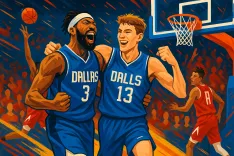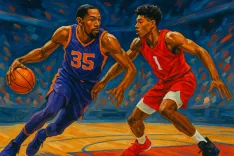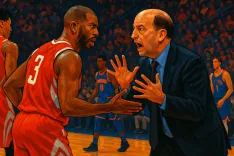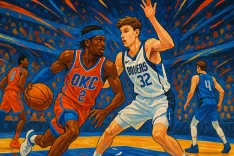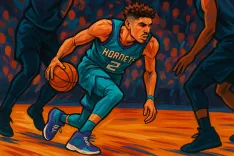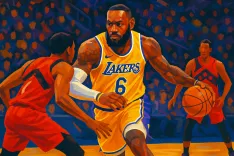Analyzing NBA Contracts: Best and Worst Deals Ahead of the Trade Deadline
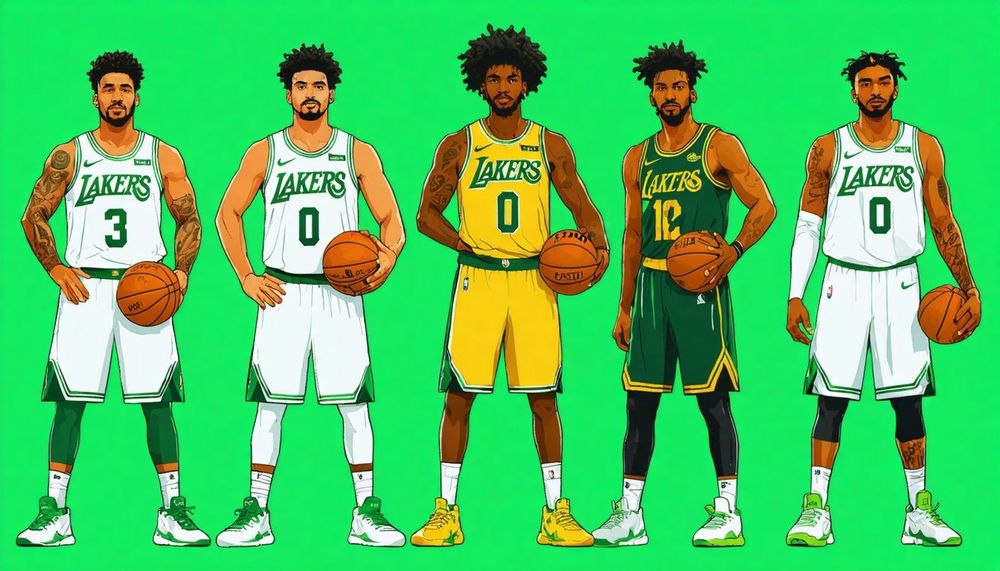
As the 2025 NBA trade deadline approaches, the league is immersed in discussions surrounding trades, rumors, and contract evaluations. This period, along with the offseason, serves as an opportune time to assess the financial commitments made to individual NBA players and their overall contributions to their teams. Evaluating the quality of a contract involves several key factors, including player age, health history, the duration of the contract, and its average annual value. However, one aspect that remains inevitable in these discussions is subjectivity. With these considerations in mind—and excluding rookie contracts (which are set by the league) and the elite players (such as Nikola Jokić and Shai Gilgeous-Alexander)—this article will explore the five best and five worst contracts currently in the NBA.
Zach LaVine of the Chicago Bulls has a contract spanning three years worth $138 million, including a player option for the 2026-27 season. As the current season progresses, LaVine's contract appears to be gaining value; he has participated in 32 of the Bulls' 37 games, averaging 23.3 points, 4.5 assists, and 3.3 three-pointers while shooting 44.4 percent from beyond the arc. The team's point differential improves significantly when he is on the court. Previous speculations of the Bulls needing to attach a first-round pick for LaVine in trade discussions may no longer be relevant. Despite this, his deal remains burdensome. LaVine's salary for the 2024-25 season ranks him alongside Luka Dončić as the 17th-highest in the league, and considering his less-than-stellar defensive capabilities, he hasn't consistently played at the level of a top-50 player this season. Given his age, turning 30 in March, along with his injury history, it is challenging to foresee a transformation into a top-20 or -30 player while under this contract.
Following LaVine, Jarrett Allen's five-year contract for $130.7 million stands out as one of the more favorable deals in the NBA. Allen serves as a defensive anchor for the Cleveland Cavaliers, who are on track for an impressive 73 wins. His contributions impact games comparable to those of top-20 players while requiring minimal touches from higher-scoring stars like Donovan Mitchell and Darius Garland. Since joining the Cavaliers 4.5 seasons ago, Allen has averaged 15.0 points, 10.3 rebounds, and 1.2 blocks, shooting 64.9 percent from the field on a contract that clocks in outside the top 70 in terms of average annual salary.
Controversy arises over the five-year, $288 million contract of Jaylen Brown, who is a vital member of the Boston Celtics' championship core and was named the MVP of the 2024 Finals. Brown's statistics have consistently featured over 20 points per game in the last six seasons, and he remains firmly in the midst of his prime. However, the reality remains that this contract positions him as the sixth-highest-paid player in the league, while some argue that he does not align with being the sixth-best player in the NBA. Currently at 28 years old, the probability that he joins the ranks of top-10 players by 2029, when his contract concludes, is questionable. His output for 2024-25 currently places him within the 50-60 player range, with a three-point shooting percentage considerably below average, alongside concerns regarding his assist-to-turnover ratio—factors that complicate the perceived value of his contract.
Austin Reaves of the Los Angeles Lakers is under a three-year deal worth $41.8 million, which includes a player option for the 2026-27 season. Initially seen as surprising, Reaves has proven to be a valuable asset; at just 26 years old, he ranks as the third-best offensive player behind superstars LeBron James and Anthony Davis. Averaging 18.3 points, 5.9 assists, and 2.6 three-pointers, his contract secures an annual salary that is below the top 130 current NBA figures. There is a high likelihood that he will continue to outperform this contract in the coming years, although opting in for that player option seems outside the realm of possibility at present.
Kawhi Leonard's three-year, $149.5 million contract raises concerns primarily surrounding his availability. The Los Angeles Clippers have not seen him at full strength during playoff runs since 2020, and his limited appearances—only two games this season—cast doubt on his reliability. Turning 34 this summer and with a history of degenerative knee conditions that have plagued his career, the expectation of him consistently delivering top-5 to -10 performances has become increasingly unrealistic.
The landscape shifted for Cameron Johnson following the trades that sent Mikal Bridges to the New York Knicks and other notable departures last offseason. Johnson now has the opportunity to showcase more of his abilities. The 6'8" forward is averaging 19.5 points, 3.3 three-pointers, and a career-high 3.0 assists with a shooting percentage of 43.6 percent from deep. While not labeled a lockdown defender, his size and on-court awareness contribute positively to his defensive efforts. Currently viewed as a top 50-60 player, Johnson's contract, averaging $65.5 million over three years, ranks outside the top 90 among current NBA salaries.
On the other hand, Jerami Grant's four-year, $132.4 million contract became more burdensome following the trade of Damian Lillard. Grant's compensation suggests top-50 status, yet his performances have not substantiated that claim, as he is not demonstrating starter-level contributions. As he approaches 31, Grant is averaging a mere 15.0 points while shooting just 38.2 percent from the field, coupled with a track record of below-average rebounding and playmaking. Although the rising salary cap may alleviate some pressure on this contract, the prospect of trading it to a willing partner remains bleak.
On a more positive note, Jaren Jackson Jr. has emerged as the Memphis Grizzlies' most impactful player this season, boasting a two-year contract worth $48.7 million. Missing only two games so far, Jackson is averaging 22.6 points, 6.4 rebounds, 1.8 blocks, 1.8 three-pointers, and 1.5 steals, making a strong case for an All-Star selection and potentially All-NBA recognition. His average annual salary ranks outside the top 80, and at just 25 years old, Jackson's contract stands out in terms of value in the current NBA landscape.
In stark contrast, Bradley Beal's five-year, $161 million contract has generated considerable debate. Approaching his 32nd birthday this offseason, Beal's defensive struggles are a long-standing concern, and his performance this season suggests he falls outside the top 200 players in the league. Despite ranking fifth in the league for salaries at $50.2 million, positioned behind superstars like Stephen Curry, Joel Embiid, Nikola Jokić, and Kevin Durant, he lacks the impact typically associated with such compensation. Notably, Beal's contract includes a no-trade clause—a rarity in today's NBA—allowing him considerable control over any potential transactions that might involve his contract.
Jalen Brunson concludes this analysis with a contract reflecting an exceptional value: five years at $181.5 million, with a player option in 2028-29. After finishing fifth in MVP voting last season, Brunson’s recent below-max extension with the New York Knicks has quickly established him as a leading candidate for value within the league, disregarding those on superstar contracts. At 28, his average annual salary ranks outside the top 40, and as the season progresses, he is again presenting a performance level consistent with All-NBA consideration. Currently, Brunson is averaging 25.0 points, 7.6 assists, and 2.3 three-pointers while shooting 38.6 percent from beyond the arc. His impressive production continues to reflect the favorable outcome of his decision to sign this extension with the Knicks.

